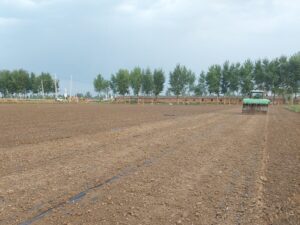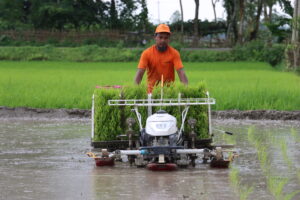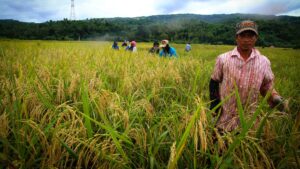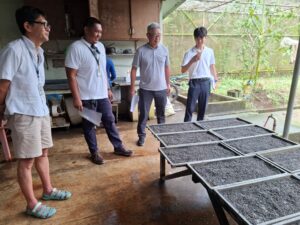by Muhammad Ashraful Habib*, Swati Nayak*, Nuruzzaman*, Saidul Islam* and Amaresh Chandel**
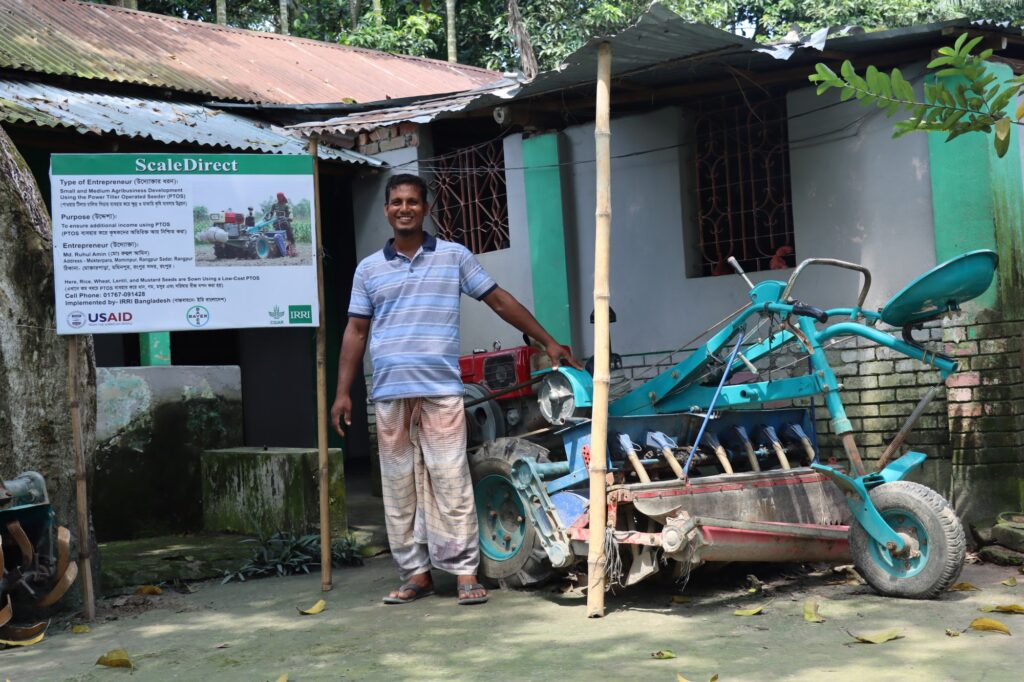
While direct-seeded rice (DSR) cultivation’s benefit over transplanted rice can be validated through both economic and environmental gain, the DSR system’s effectiveness could be increased with the inclusion of power tiller-operated seeder (PTOS) machines. This intervention with Bangladesh’s smallholder community and local service providers (LSPs) is showing a measurable impact.
This invention drastically decreased the amount of water used, as well as the amount of work, time, and seed required. PTOS helps farmers attain optimal land utilization and increase yield quality by planting the seeds promptly and evenly. Higher yields are ultimately the result of this exact seeding, which guarantees consistent germination, enhanced root development, and general crop health. Furthermore, the PTOS improved soil health and decreased water waste contributing to sustainable farming.
The use of this technology is helping farmers’ socioeconomic circumstances, which will serve as a model for sustainable growth in agricultural systems in the years ahead.
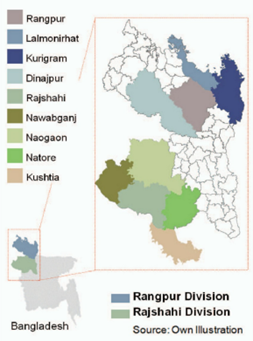
PTOS can be used to seed crops with minimum tillage. In a single operation, the machine can be used for shallow tilling, line sowing, fertilizing, seed covering, and leveling the ground. Farmers also utilize the PTOS for wheat, mustard, and lentils for other cropping seasons. This device is very beneficial to farmers and is reasonably priced to run.
In some places in northern Bangladesh, this tillage and sowing method was used to develop crops under the rice-wheat cropping system. Wheat, maize, lentils, and chickpeas were planted after the rice harvest.
Using the PTOS, mungbean, sesame, and jute were planted after the wheat harvest. Minimal tillage planting reduced irrigation water use by 12% for wheat and 66% for rice (Hossain et al., n.d.).
One of the PTOS machine’s main advantages is its versatility, particularly its ability to function well in both wet and dry soil conditions. Farmers can more effectively cover greater areas since it cuts down on the time and work required for sowing. By guaranteeing uniform seed dispersal, the device reduces seed waste and minimizes input expenses.
Furthermore, by reducing manpower and water requirements, the PTOS machine lowers production costs substantially and increases the sustainability of the DSR system. This technological breakthrough makes rice farming more profitable and productive while improving environmental sustainability.
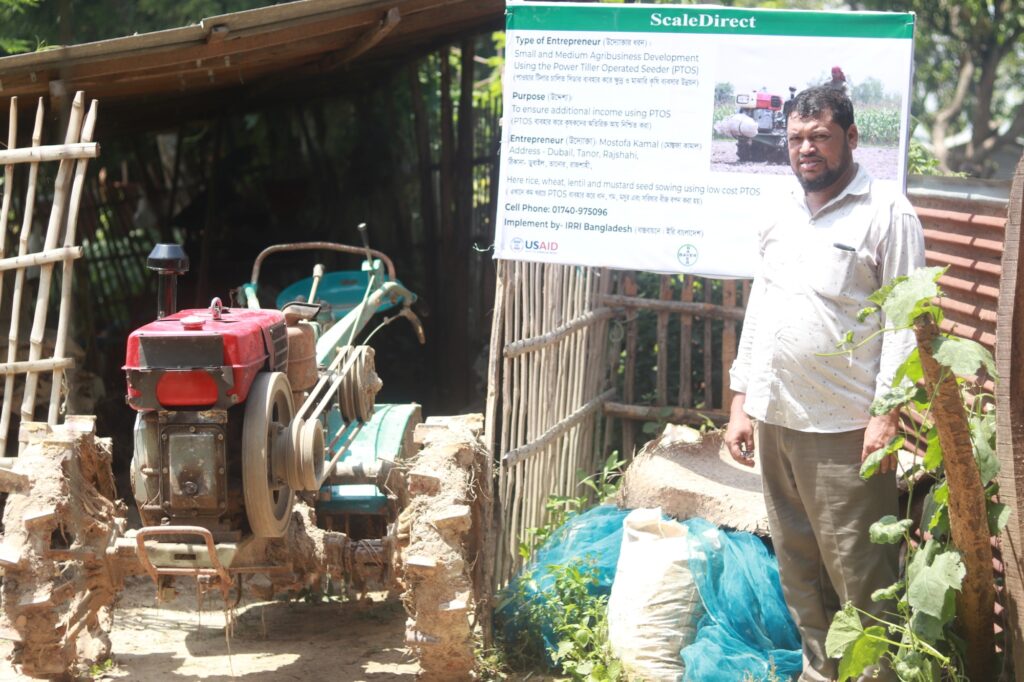
Enhancing efficiency, profitability, and agricultural service provisioning
The adoption of PTOS not only reduces the cost of production allowing farmers to benefit economically. It also provides Local Service Providers (LSPs) the opportunity to be self-sufficient.
The PTOS is an essential instrument that helps LSPs boost their productivity and capacity to serve the agriculture industry. Small- and medium-sized farmers typically have access to contemporary equipment and technology through LSPs.
LSPs can help more farmers by providing services more quickly and effectively. LSPs can also earn more income because the PTOS can be used on vast areas of land with minimal labor. By using the PTOS, the LSPs can assist farmers in lowering production costs by reducing the amount of seeds and water and boosting farmer profitability. LSPs and farmers are able to build lasting connections as a result, which increases the market value and relevance of the LSPs’ services.
In an effort to acquaint farmers with PTOS, the project ScaleDirect provided training on operating the machines as part of the ongoing DSR operations in their respective areas.
“Being farmers ourselves, the PTOS machine has given us an inventive opportunity to cultivate our own land and as well as provide service to others,” said Mostofa Kamal, an LSP from Duboil Village in Tanore Upazila in Rajshahi Division.
“We now have another source of revenue owing to farmers who opt for DSR and come to us for the service,” said Ruhul Amin, an LSP from Muktarpur Union, Rangpur Sadar in Rangpur Division
| Expenses | Amount of Cost (USD/ha) |
| i. Diesel | 10.20 |
| ii. Operator | 12.58 |
| iii. Mobil | 1.26 |
| iv. Machine wear | 3.15 |
The LSPs earn USD 43.99 per hectare even with the operating cost of the machine at USD 27.09, they make a sizable profit of USD 16.90 and the chance to become self-reliant entrepreneurs.

According to Miah et al. (2009), PTOS proprietors use it for their land cultivation and generate additional revenue by licensing it to other farmers. Conservation tillage using PTOS has significantly impacted farmers’ employment, household income, and farming activities.
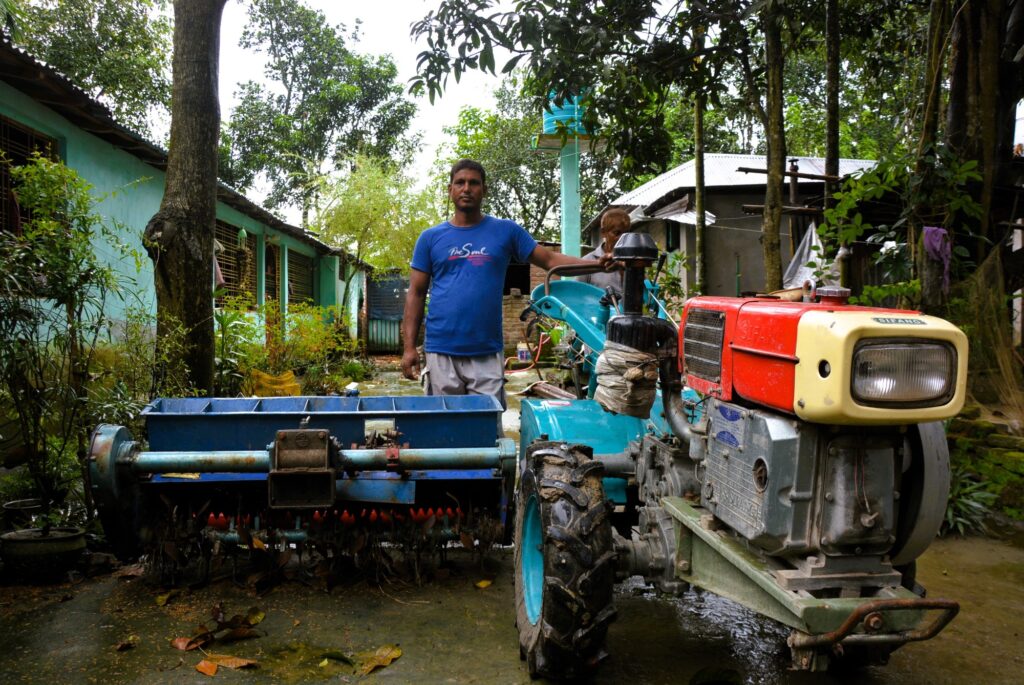
Crop productivity, reducing waste, and increasing cropping intensity
Farmers and LSPs benefit greatly from the use of PTOS machines. Larger expanses of land can be cultivated by farmers in less time. It allows them to harvest the crops earlier, which is essential for raising agricultural productivity and meeting consumer demand. Additionally, seed wastage significantly drops using this device. With accurate planting ensured by the PTOS, crop emergence is uniform and healthier crops are produced while also optimizing seed usage.
The cropping intensity also improved as a result of this technological innovation. Farmers, who could only cultivate two crops in a season previously, can now grow three crops on the same land. Farmers can now optimize their land’s potential and raise yields and profitability by switching from double to triple cropping. Ultimately, this not only enhances the economic prospects of farmers but also contributes to better food security and resource utilization in agricultural communities.
About the project:
ScaleDirect is a unique Public-Private Partnership engaging IRRI-Bayer, supported by USAID and implemented by IRRI and its national agricultural research and extension partners in India, Bangladesh, Nepal, Kenya, Tanzania, and Mozambique
Reference:
Hossain, M. I., Islam, M. S., Hasan, S., Timsina, J., Meisner, C. A., & Siddique, N. A. (n.d.). Power tiller operated seeder (PTOS): a versatile seeding and minimum tillage machine for increasing crop intensification and sustaining productivity in Bangladesh.
Miah, M. M., Rahman, M. M., Haque, M. E., & Wohab, M. A. (2009). Adoption impact of conservation tillage with power tiller operated seeder in Bangladesh. Journal of Rural Development, 36(1), 1-22.

